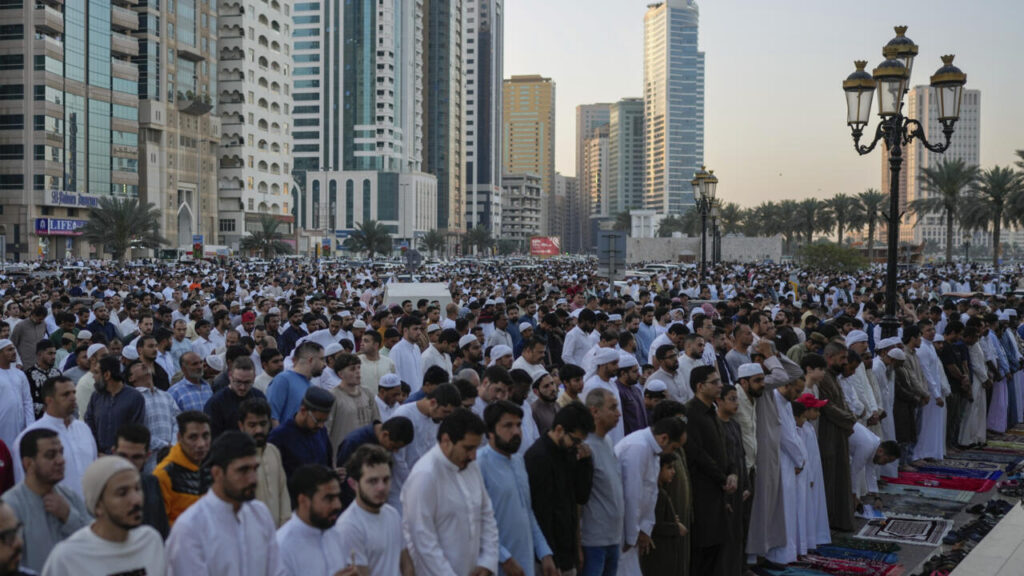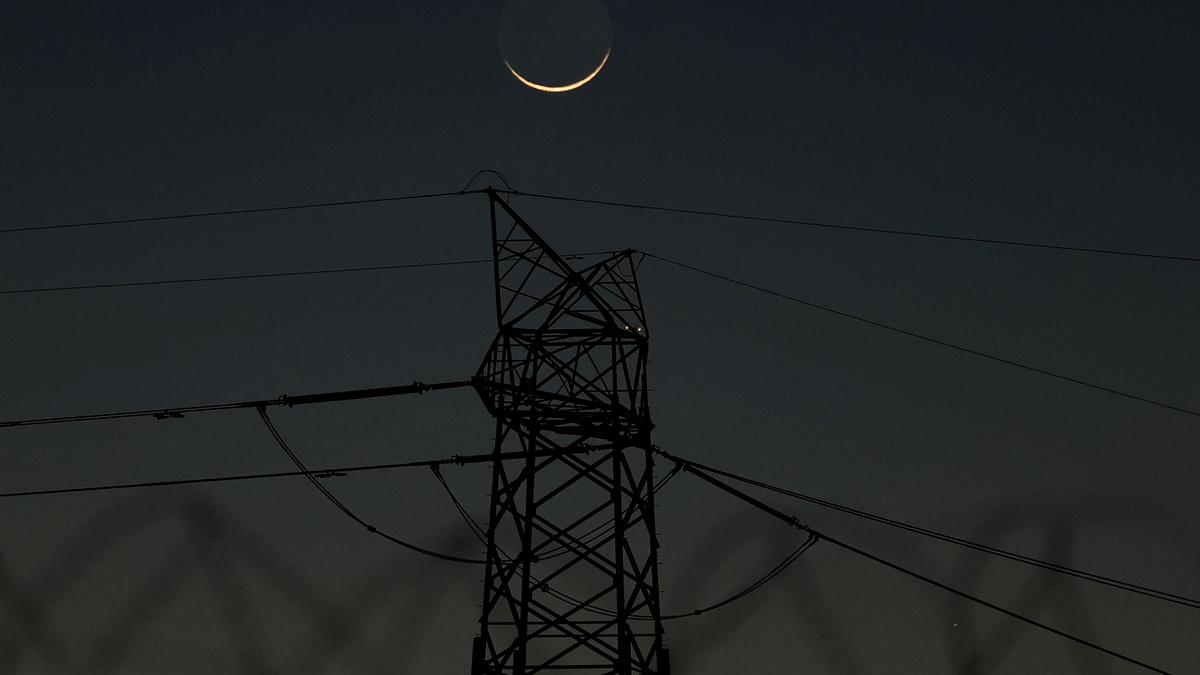Saudi Arabia announces end of fasting month, marking the close of Ramadan and the beginning of Id celebrations across the Gulf on March 30. The official announcement was made after the beginningnew crescent moon, a tradition that holds deep cultural and religious significance for Muslims worldwide.
A Time of Joy and Celebration
The end of the fasting month of Ramadan is one of the most anticipated events in the Islamic calendar. For a month, Muslims across Saudi Arabia and the wider Gulf have observed dawn-to-sunset fasting, nightly prayers, and acts of charity. With the new moon sighted, the faithful now prepare for Id al-Fitr, known simply as Id, which will be celebrated on March 30.
Id is not just a religious occasion; it is a social and cultural event that brings families, friends, and communities together. Streets and mosques are decorated, homes are filled with festive meals, and children look forward to receiving gifts and new clothes. The announcement from Saudi Arabia sets the tone for the entire region, as many Gulf countries follow its lead when declaring the start of Id.
How the Date Was Determined
The determination of Id depends on the sighting of the new crescent moon, a practice rooted in Islamic tradition. In Saudi Arabia, religious authorities and dedicated committees look for the crescent moon after sunset on the 29th day of Ramadan. Once confirmed, the announcement is broadcast nationwide and shared with other Gulf countries.
This year, the sighting confirmed that March 29 would be the last day of Ramadan, with Id celebrations officially beginning on March 30. For millions of Muslims, this announcement is a moment of joy, as it marks the successful completion of a spiritually significant month.
Saudi Arabia Announces End of Fasting Month: Regional Impact
When Saudi Arabia announces the end of the fasting month, other Gulf countries such as the United Arab Emirates, Qatar, Kuwait, Bahrain, and Oman often follow suit. These countries share deep religious and cultural ties with the kingdom, and synchronized celebrations strengthen the sense of unity across the region.
In the UAE, the government has already declared public holidays to allow families to celebrate together. Qatar, Kuwait, and Bahrain have also issued similar announcements. Oman, known for its careful moon-sighting process, aligned its Id celebrations with the March 30 date, further confirming the regional consensus.

Traditions and Customs of Id in the Gulf
The celebration of Id in the Gulf is marked by a rich tapestry of traditions:
- Families wake up early for special Id prayers at mosques and open grounds.
- Charitable giving, known as Zakat al-Fitr, is emphasized to help the less fortunate.
- Lavish meals, including traditional dishes and sweets, are prepared and shared.
- Children receive gifts, new clothes, and cash in the form of “Eidiya.”
- Homes are decorated, and people visit relatives and friends to exchange greetings.
Each Gulf country adds its unique flavor to the celebration. In Saudi Arabia, large communal prayers and traditional dances like the ardah are common. In the UAE, fireworks displays and cultural events mark the occasion, while Qatar emphasizes family gatherings and public festivities.
Economic and Social Significance
Id celebrations also have a strong economic impact in the Gulf. Shopping malls, markets, and retailers experience a surge in activity during the days leading up to Id. Families invest in new clothes, gifts, and festive meals, boosting local businesses. The travel and hospitality sectors also see growth as many people choose to spend the holiday abroad or host family gatherings.
On a social level, Id strengthens family bonds and fosters community spirit. The focus on charity ensures that even the less fortunate can participate in the joy of the holiday. Acts of giving, whether through official charities or informal donations, reflect the core values of compassion and solidarity that define Ramadan and Id.
Saudi Arabia’s Central Role
Saudi Arabia’s role in declaring the end of the fasting month goes beyond its borders. As the birthplace of Islam and home to the holy cities of Mecca and Medina, the kingdom carries immense religious authority. The announcement made by its scholars and officials sets the benchmark for Muslims across the Gulf and, in many cases, for communities around the world.
This central role underscores the importance of Saudi Arabia not only as a political and economic leader in the region but also as a spiritual guide for millions of Muslims.
Anticipation and Global Relevance
While the Gulf is directly affected by Saudi Arabia’s announcement, Muslim communities around the globe watch closely as well. Countries in Asia, Africa, Europe, and the Americas often synchronize their Id celebrations with those of Saudi Arabia or announce based on their local moon sighting.
This global connection highlights the unifying power of the Islamic calendar. Despite geographical distances and cultural differences, Muslims everywhere share the same excitement as Id approaches. The announcement from Saudi Arabia thus resonates far beyond its borders.
Preparing for the Festivities
In the days leading up to Id, Gulf cities have been buzzing with activity. Markets have seen increased demand for clothes, perfumes, and traditional sweets. Bakeries and restaurants are working overtime to meet the festive needs of their communities. Mosques are preparing for large crowds, while families are busy planning gatherings that will last throughout the holiday.
The Gulf governments have also taken steps to ensure a smooth celebration. Extra security measures, traffic management, and public services are being arranged to accommodate the influx of people attending prayers and events.
A Spirit of Gratitude and Renewal
At its heart, Id is about gratitude. Muslims thank God for giving them the strength to complete a month of fasting, prayer, and reflection. It is also a time for renewal, when individuals seek forgiveness, mend relationships, and set intentions for the months ahead.
In the Gulf, where modern lifestyles are rapidly evolving, Id remains a powerful reminder of cultural continuity and spiritual grounding. It bridges the gap between tradition and modernity, offering a shared experience that resonates with all generations.
Conclusion
Saudi Arabia announces end of fasting month, and with that declaration, millions across the Gulf and beyond prepare to welcome Id on March 30. It is a moment filled with joy, unity, and reflection.
The celebration brings together families, strengthens communities, and reminds people of the values of generosity, compassion, and faith. For the Gulf countries, Id is not only a religious milestone but also a cultural and social event that highlights the region’s traditions, hospitality, and spirit of togetherness.
As the world watches the Gulf welcome Id, the message is clear: faith, family, and unity continue to stand strong, guiding communities toward a hopeful and harmonious future.
Read More: Saudi Arabia’s Dazzling ‘Ramadan Lights’ Illuminate the Holy Month



